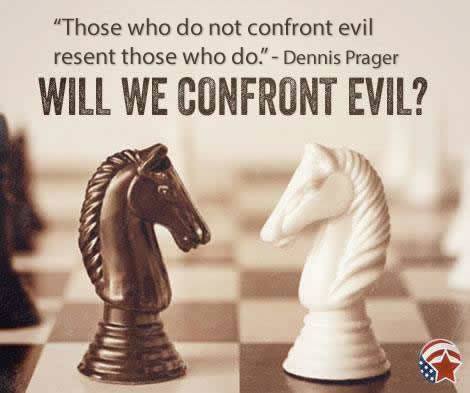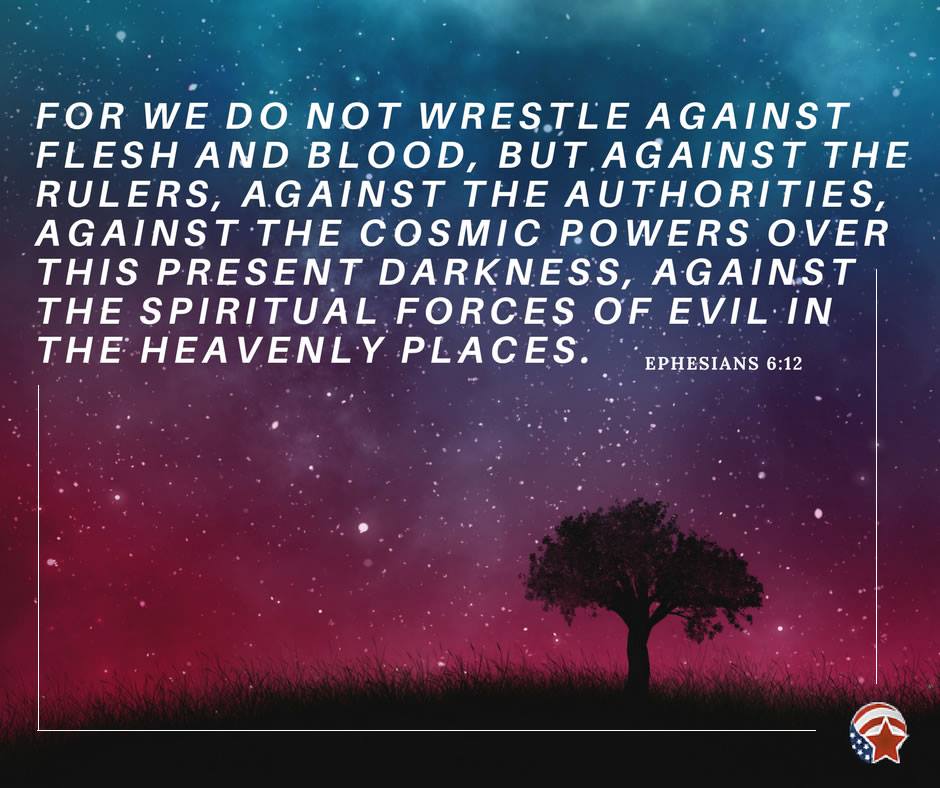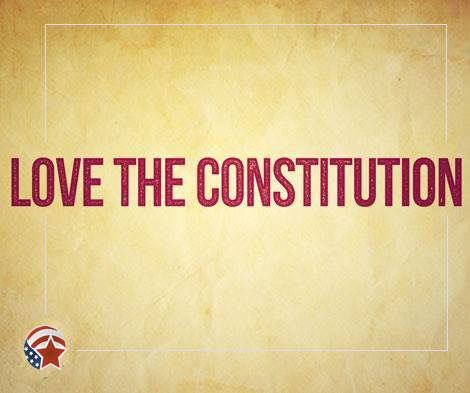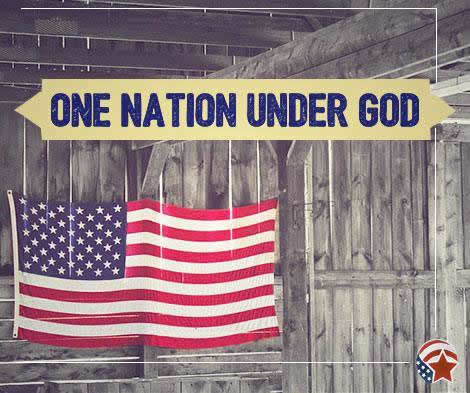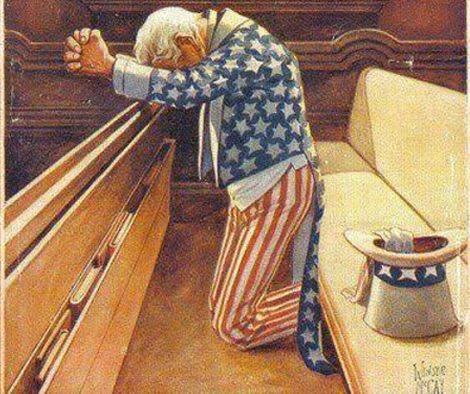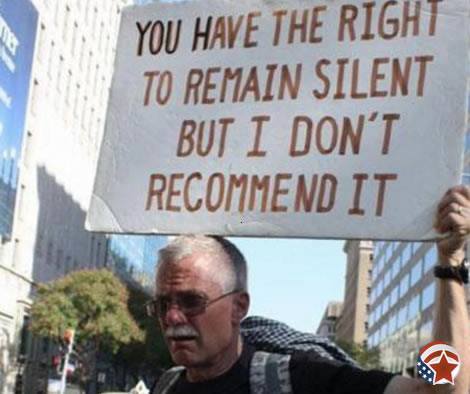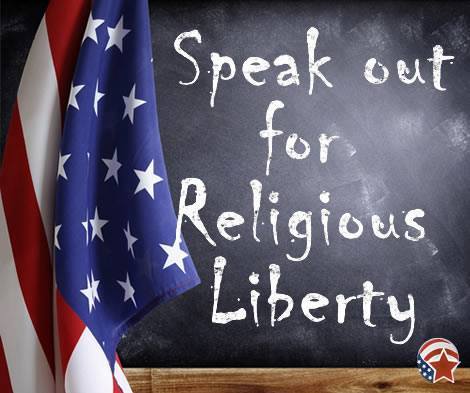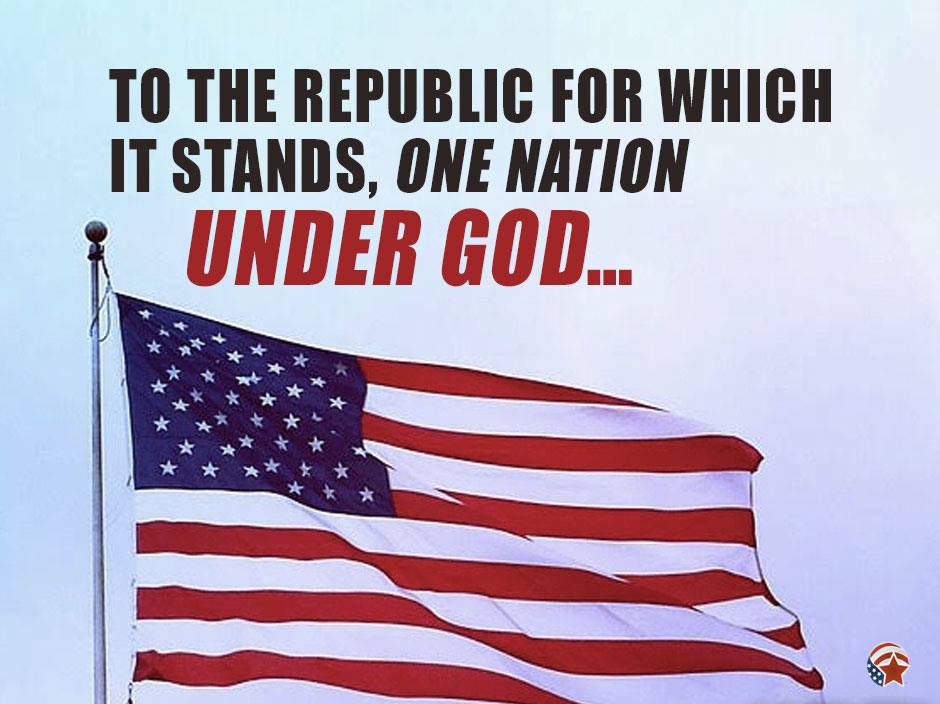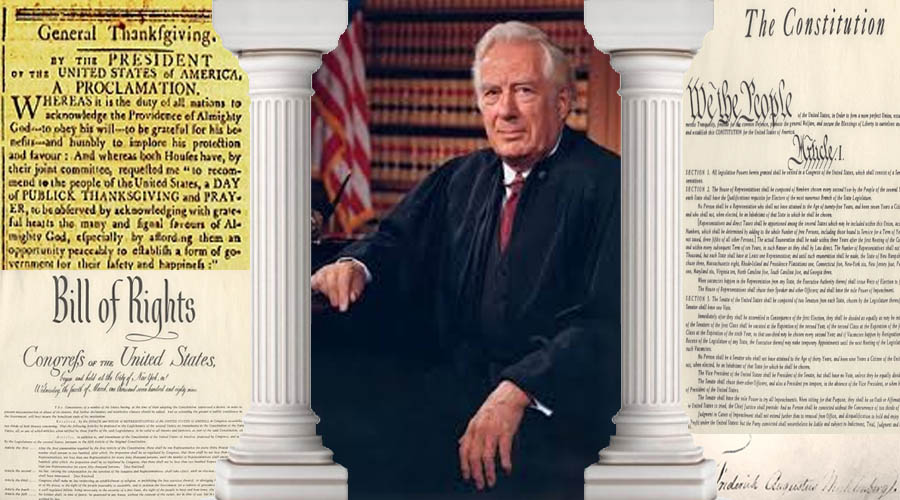
Chief Justice Warren Earl Burger wrote in Marsh v. Chambers (1982):
“It can hardly be thought that in the SAME WEEK the members of the first Congress VOTED to appoint and pay a CHAPLAIN for each House and also VOTED to approvethe draft of the FIRST AMENDMENT … (that) they intended to forbid what they had just declared ACCEPTABLE.”
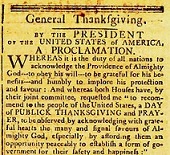 The same week Congress approved the First Amendment, they requested President George Washington declare the First National Day of Thanksgiving
The same week Congress approved the First Amendment, they requested President George Washington declare the First National Day of Thanksgiving 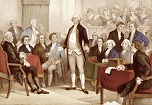 and Prayer to Almighty God on OCTOBER 3, 1789.
and Prayer to Almighty God on OCTOBER 3, 1789.
The First Amendment, together with the first Ten Amendments, called the Bill of Rights, were passed in the First Session of Congress, which was meeting in New York City.
These Amendments were intended to be “handcuffs” or limitations on the power of the new Federal Government.

The Bill of Rights have two signatures, that of Vice-President John Adams, President of the Senate, and Frederick Augustus Muhlenberg – an ordained Lutheran minster who was elected the First Speaker of the U.S. House of Representatives.
The PREAMBLE to the Bill of Rights explained the States’ concerned the Federal Government might abuse its power:
“The Conventions of a number of the States, having at the time of their adopting the Constitution, expressed a desire, in order to PREVENT misconstruction or ABUSE OF ITS POWERS, that further declaratory and RESTRICTIVE CLAUSES should be added … as amendments to the Constitution of the United States.“

As Congress was the branch of government where laws were to be written, it was restricted by these Amendments.
The First Amendment began:
“CONGRESS shall make no law respecting an establishment of religion or prohibiting the free exercise thereof.”
Websters 1828 Dictionary defined “respecting” as: “regarding,” “concerning,” or “relating to.”
In other words, when the subject of an establishment of religion came before the Federal Government, their response was to be “hands off,” as religion was under each individual State’s jurisdiction.
The First Amendment continued, limiting Congress from:
“abridging the freedom of speech, or of the press; or the right of the people peaceably to assemble, and to petition the Government for a redress of grievances.”
Click here to read full article: http://bit.ly/2dHimGE


